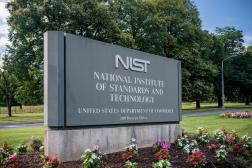The National Science Foundation sees big data as an iceberg, and as the old metaphor goes, the research agency thinks we’ve only seen the tip. To dig deeper and unlock the greater benefits of big data, NSF is putting its money — $31 million of it — on developing the building blocks of an interoperable big data infrastructure.
Under the scope of its Data Infrastructure Building Blocks (DIBBs) program, NSF awarded the $31 million in funding to support 17 new projects in the second year program focused on boosting the nation’s big data efforts. Specifically, the awards are investments in developing a cyberinfrastructure to expand the capabilities of data scientists working with massive data sets.
“Developed through extensive community input and vetting, NSF has an ambitious vision and strategy for advancing scientific discovery through data,” said Irene Qualters, division director for Advanced Cyberinfrastructure at NSF, in a statement. “This vision requires a collaborative national data infrastructure that is aligned to research priorities and that is efficient, highly interoperable and anticipates emerging data policies.”
Each of the selected programs is meant to investigate a separate critical section of the greater cyberinfrastructure to build the “capacity and capability” of data in the U.S., according to a release.
“Each project tests a critical component in a future data ecosystem in conjunction with a research community of users,” Qualters said. “This assures that solutions will be applied and use-inspired.”
The DIBBs awards are broken into two categories: early implementation grants, given to researchers pursuing more mature problems in big data, and pilot demonstrations, which build on the more advanced cyberinfrastructure focuses of already-developed research communities. The two early implementation award winners will receive $5 million over five years, whereas the pilot projects will get $1.5 million to fund three years of research.
The DIBBs projects were awarded to teams at universities all around the nation focusing on topics like visualizing geo-chronological data at the College of Charleston and managing the data emerging from the Laser Interferometer Gravitational-wave Observatory at Syracuse University.
A team from the University of Illinois Urbana-Champaign received funding from the DIBBs program last year for an an early implementation project and evolved its research into a software called Brown Dog, which helps researchers make sense of outdated information trapped in the deep Web. It shines as a model for how DIBBs projects can extend beyond research into widespread, practical use.
“Brown Dog today is developing a ‘time machine’ set of cyberinfrastructure tools, software and services that respond to the long-standing aspiration of many scientific, research and educational communities to effectively access, share and apply digital data and information originating in diverse sources and legacy environments in order to advance contemporary science, research and education,” said Robert Chadduck, the program director at NSF who oversees the award, in a statement. Beyond that, the team said even consumers could one day have a need for such a software, giving it life outside of just research.






